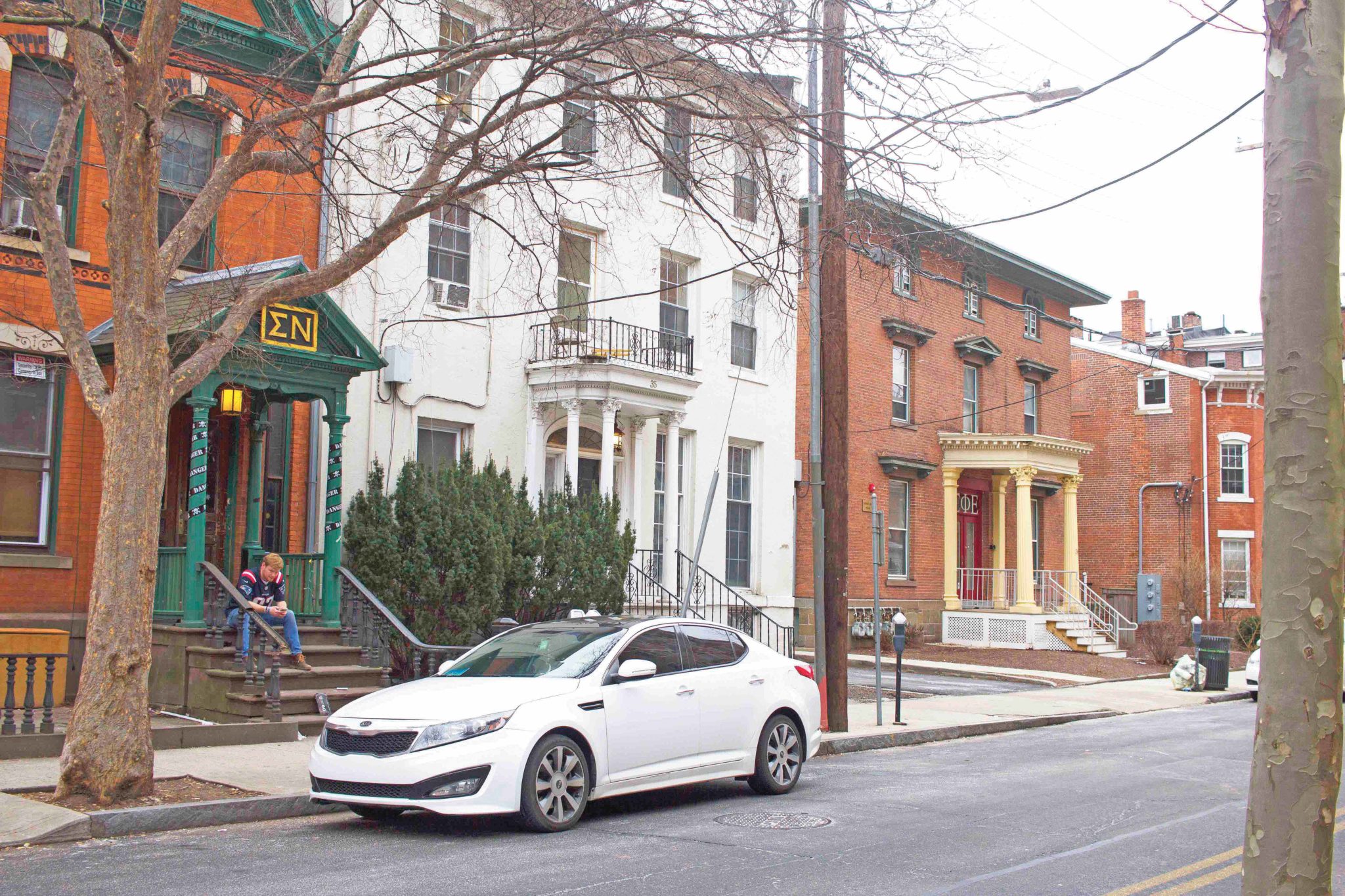
Surbhi Bharadwaj
With Yale’s largest-ever first-year class rushing fraternities and sororities this past month, many Greek organizations have seen greater interest in membership this year. Several fraternities boast larger than usual pledge classes, and the number of women who registered for sorority rush also peaked this year.
Fence Club, Yale’s only coed fraternity, is among the Greek organizations that saw increased interest this year. According to Fence Club President Katherine Hong ’19, the increase in the number of students rushing Fence indicates a growing demand for gender-integrated social spaces on campus.
“Yale could definitely benefit from more coed fraternities, and I don’t think people realize how possible it is to create more of Fence-type organizations,” Hong said. “More and more incoming first years have been rushing Fence, and I think that shows that students’ expectations for their social spaces are changing.”
Roughly 150 students signed up to rush Fence this year, and of the 80 individuals who sought bids, roughly 20 were offered membership, according to Hong. Those figures make Fence one of the most selective Greek organizations on campus.
Associate Vice President of Student Life Burgwell Howard said that Fence Club may feel “somewhat overwhelmed” by its membership demands but that there are a host of reasons for the increased interest in the organization beyond the fact that the group is coed.
Over 100 students sought bids from Sigma Phi Epsilon this year, and 29 received offers — a slight uptick in interest from past years, according to a SigEp member who spoke on the condition of anonymity because brothers are not permitted to share rush statistics. Ten women and gender nonbinary students submitted bid requests to SigEp, which for the second year in a row was the only traditionally all-male fraternity to allow women to attend its rush events. No female or gender nonbinary rushees were accepted into the fraternity, as SigEp’s national bylaws prohibit nonmale students from becoming members.
Members of SigEp’s leadership did not respond to requests for comment.
Alpha Epsilon Pi’s chapter at Yale also saw increased demand this year, according to AEPi President Robert Proner ’19. The fraternity has no formal system for requesting bids, but students who express interest through the rush process are eligible for membership. Roughly 80 students completed the rush process this year, and 20 accepted bids.
Proner added that AEPi has been growing in recent years, and this pledge class is the fraternity’s largest ever. In the past, AEPi has typically accepted around 15 students each spring.
Some of this new demand may have to do with the increase in the size of the first-year class. With over 1,550 students, the class of 2021 is 200 students larger than the class of 2020, making it the largest in Yale’s history.
The number of women who registered for sorority recruitment also grew this year, from 270 to 300 students, according to Yale Panhellenic Council President Lucy Friedmann ’19. The increase is roughly proportional to the increase in the size of the first-year class, which is 15 percent larger than other classes.
Each of Yale’s four sororities — Alpha Phi, Kappa Alpha Theta, Kappa Kappa Gamma and Pi Beta Phi — accepted 45 to 48 new members, which is consistent with figures from previous years.
Earlier this month, Delta Kappa Epsilon’s chapter at Yale announced it would be canceling all social events until its national organization completed an investigation into the chapter’s sexual climate. According to a DKE spokesman, the investigation ended last week, and the chapter has been given approval to resume its rush process. This year’s pledge class is approximately the same size as last year’s, he said, despite a temporary postponement of rush events.
“We’re proud that the class is fully committed to joining our organization with an enthusiasm to enact the reforms detailed in our working group report, in order to uphold the highest possible standards in our organization for years to come,” the DKE spokesperson said, referring to the set of recommendations finalized on Feb 9., which aims to foster a safer environment at the fraternity.
The News asked the DKE spokesman on Wednesday night how DKE is aware of the size of its pledge class despite not having held any social activities or rush events since the beginning of the semester and since fraternities are not permitted to hold rush activities for first-years during the fall term as per University guidelines. The spokesman did not directly respond to the question, but shortly afterwards, DKE President Nicholas Hardy ’18 sent the News a slightly revised statement, saying this year’s “expected pledge class” is approximately the same size as last year’s.
Fraternities like DKE, SigEp, AEPi and Chi Psi have remained popular this year, and some have seen interest in membership increase, despite renewed allegations of sexual misconduct against current and former DKE members, which have sparked discussion and controversy on campus about the sexual climates of all-male spaces.
But not all of Yale’s Greek organizations saw interest increase or hold constant this year. Zeta Psi offered membership to seven students, three of whom accepted bids, according to Rohan Gurram ’21, who is pledging the fraternity.
Gurram attributed the decrease in interest to a general conception that only football players rush Zeta, as well as declining interest among first years on the football team. The fraternity brothers tried to recruit a more diverse group of students this year, and only one of the three new pledges is on the football team, he said.
Sigma Nu President and sports columnist for the News Kevin Bendesky ’19 and Chi Psi President and former Photo Editor for the News Otis Baker ’19 declined to share their fraternities’ rush statistics. Representatives of Alpha Delta Phi, LEO and Sigma Chi also did not respond to requests for comment.
Chi Psi offered bids to 21 students this year, according to three of the fraternity’s pledges.
Alice Park | alice.park@yale.edu







